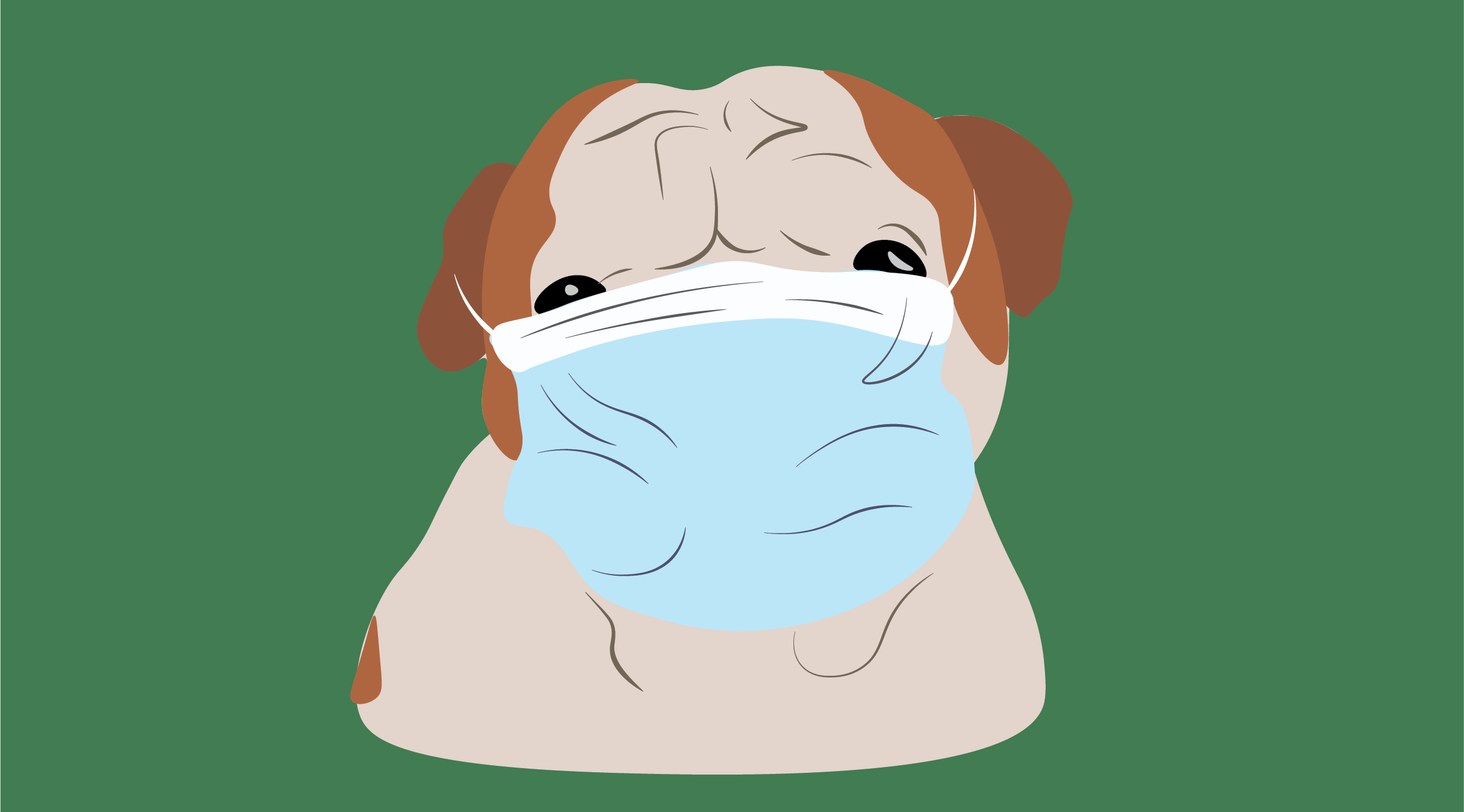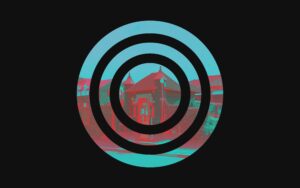When I pictured my senior year at Georgetown, I saw study sessions with friends, trips to the Tombs for trivia night, and football and basketball games with the pep band. My roommates and I planned a Friday night at Nelly’s once the last of us had turned 21. I looked forward to senior ball, graduation, and the Spring 2021 culmination of the education I had worked hard to obtain over the last four years.
Instead, I’ve spent my fall taking courses from my room in the Burleith house my roommates and I signed a lease for last October when no one could imagine a pandemic, arranging contactless book pick up from the library in order to work on my senior thesis, and anxiously awaiting the results of my weekly COVID-19 test. No Tombs, no games, and potentially no (physical) graduation. And while my last year of college will most likely be defined by this pandemic, I know it is nowhere near the worst thing anyone in my neighborhood, let alone the world, is facing right now. It’s painful to let go of the senior year I’d always thought I’d have, but I can’t ignore reality, and I believe that Georgetown should not welcome students back to campus in January for the Spring 2021 semester unless there is a COVID-19 vaccine or the pandemic has been brought under control, both of which seem unlikely as I write this.
Right now, more than 200,000 Americans have died of COVID-19, and national forecasts predict tens of thousands more deaths in the next few weeks as the U.S. enters its third wave. Some universities in the District like American University and George Washington University have already announced most of their spring classes will be online. Despite this, a group of Georgetown parents have published a petition advocating for the school to open in January, claiming that “most universities have found a way to safely open their campus to students,” which is categorically untrue. In Alabama, Georgia, Ohio, and Texas, there are over 10,000 cases of the illness associated with colleges and universities. Outbreaks at the University of North Carolina Chapel Hill and the State University of New York Oneonta have resulted in students being sent home to complete the semester online. According to a paper by professors at several universities, college reopenings account for around 21,000 new COVID cases every week. Though schools like Cornell, located in a city with a population only 4% the size of D.C.’s, have managed to maintain low positive test rates, it’s unlikely that Georgetown could see the same level of success in a densely populated city. There is significant evidence that reopening universities without any COVID infections is nearly impossible.
The petition also argues that “unfortunately, COVID-19 will not be gone anytime soon, and we need Georgetown’s leadership to get their students who wish to be on campus to be allowed to do so,” as if the pandemic has simply become a fact of life we all need to live with. It’s true that coronavirus is not likely to disappear by January, but that doesn’t mean it’s acceptable for students to flood back to campus without regard for the consequences. For many students with chronic illnesses, disabilities, or immune system problems, contracting the illness could have serious, life-threatening effects. Implying that these students should be excluded from conversations about reopening the university is, at its core, ableism, and a terrible example of how Hoyas should treat other Hoyas. Those who aren’t in high-risk groups may still experience effects of COVID long after recovering, or they might never recover at all. Beyond concerns about student health, there are also hundreds of university employees who would be forced to face COVID concerns. Across the country, the majority of deaths in college communities have been school workers, not students themselves. To return to campus en masse in Spring 2021 would put student and staff health at risk, and that sacrifice outweighs the benefits of an on-campus experience.
Even if every single student returning to school consented to potential exposure to coronavirus, there are 700,000 other residents of the District of Columbia who face the consequences of a reopened Georgetown. Allowing students to move into dorms means more risk for janitorial staff, dining hall employees, and even cashiers at the neighborhood Safeway, Trader Joe’s and CVS. These workers—many of whom are making low hourly wages and support families—do not get to choose whether or not they do their jobs and may travel across the city to get to work. Georgetown is a predominantly white institution, while D.C. is a 46% Black city that has managed to keep its death toll in the hundreds, even though research shows that the pandemic is a larger threat to people of color. Far outside of our front gates, other residents of the District have also been impacted by COVID, and they shouldn’t have to face an increased risk of infection simply so Georgetown students could return to campus.
For many of us, Georgetown and our life in D.C. will be a four-year experience, propelling us to careers in high-paying sectors. We might take a job in the DMV area for a few years after graduation and continue to live in one of the most intensely gentrified areas of the country, or maybe we’ll move to New York and join dozens of our fellow alumni at JPMorgan, Deloitte, Ernst & Young, or PwC. Our footprint on the District might seem temporary—after all, we only make up a small portion of its population. But causing a COVID outbreak in Spring 2021 would have real, lasting effects that could cost lives and impact public health permanently. D.C. is not a playground on which Georgetown students can spend a few years and casually leave behind; it is home to real people, with real lives worth protecting.
We’ve all worked hard to get to Georgetown, and I know as much as anyone how unfair it feels to be confined to our homes during what should have been some of the most exciting years of our youth. After this, I’ll never be in college again, and it’s painful to know that this is how I’m ending my time on (or off) the Hilltop. But the chance to attend college at an elite university in America is a privilege that the majority of the population will never get, and we’re not entitled to spread a deadly illness simply so we can have in-person classes and gatherings. It’s selfish to place our desire to return to campus above the rights of others to remain safe and healthy.
Spending the last year of my Georgetown education online has been one of the hardest things I’ve ever done. Every day, I wish that I could open my news app to a headline screaming that the coronavirus has been eradicated, or an email from Provost Groves telling us that there’s a safe way for us to return to campus for Spring 2021. But my Georgetown education, even over Zoom, has shaped me as a person and guided my transition from childhood to adulthood. I have learned what it means to take control of my learning and to analyze everyday life more critically, but I’ve also grasped what it means to take responsibility for my actions and their impact on the world around me. One of the most difficult parts of growing up has been learning that you can’t always get what you want, especially when your desires endanger others. Yes, these months we spend separated from one another are undeniably difficult. But like our courses in philosophy and history, they’re also part of our education. It’s time we put the good of the world over our personal satisfaction—my time at Georgetown has taught me as much.






